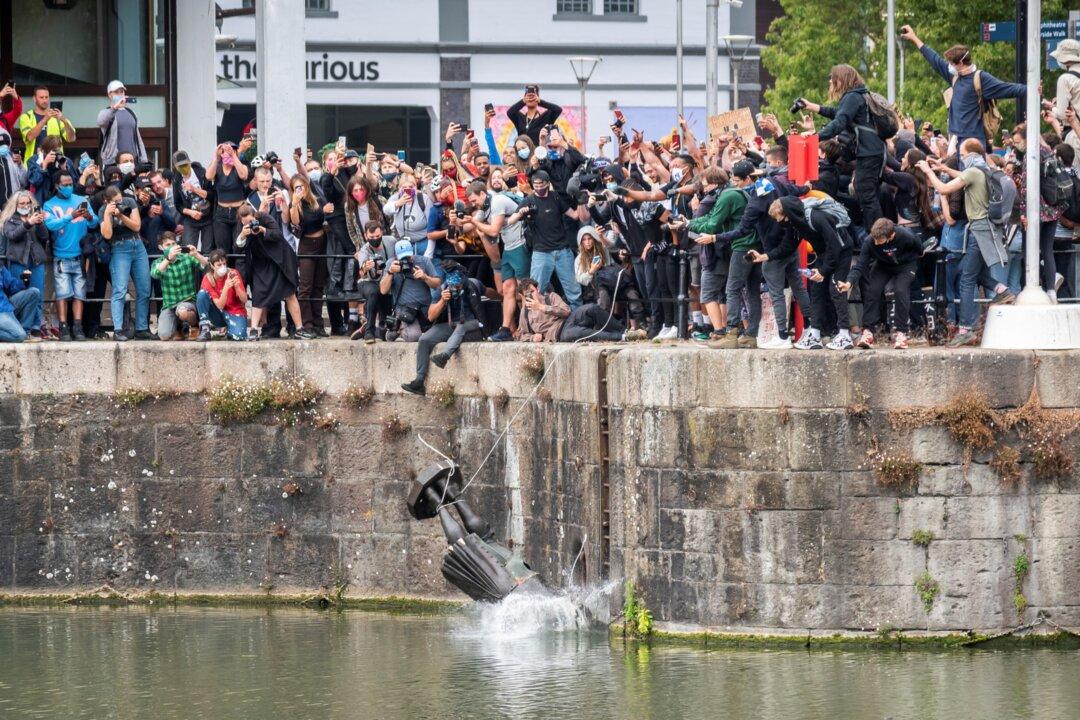Four people who were charged for allegedly toppling a statue in Bristol during last year’s Black Lives Matter (BLM) protests have pleaded not guilty.
The four people, who appeared at Bristol Crown Court on Tuesday, were accused of damaging the statue of Edward Colston, a 17th-century merchant, which was toppled during a Black Lives Matter protest in Bristol in June 2020, following the death of George Floyd in Minneapolis police custody.





